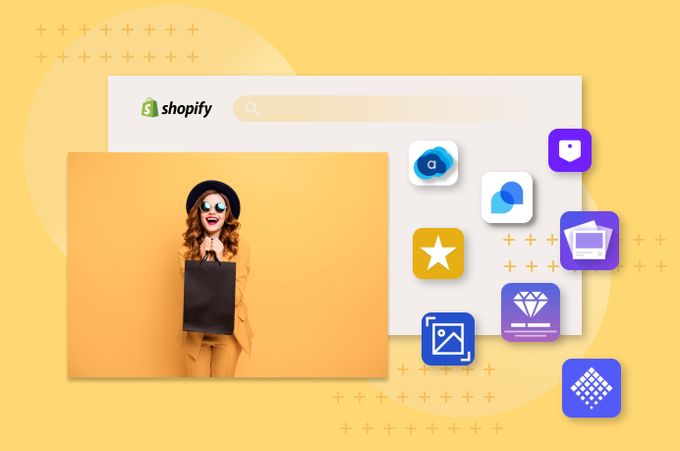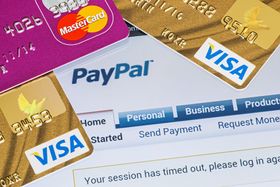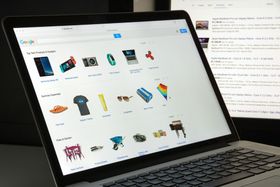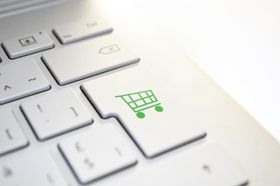Top Apps Every Shopify Store Should Use
Updated February 10, 2023

AI Summary
Whether it be automating email marketing efforts, increasing organic site traffic, or adding high-conversion features like countdown timers or reorder buttons, the Shopify app store has a ton of different options to extend the functionality of your store. But with so many options, the problem doesn’t lie with a lack of choice, but instead with a feeling of “seriously, which ones do I even need?”
To help you out, here are the different types of apps that you’ll absolutely need if running your Shopify store is to go super smoothly:
Finding Products
Finding high-demand winning products is possibly one of the hardest parts of running an e-commerce store. With so many different suppliers and manufacturers all offering products that vary in price, quality, and varying shipping times, it can start to feel like you’ll never decide on which products are best for your business.
Never fear, product-finding apps strive to make discovering that killer product much easier. Well-developed product-finding apps allow you to search endless high-demand products from competitors and other stores within your niche in just a few simple clicks.
Dropshipping
As easy as understanding the concept of dropshipping is, it’s certainly harder to implement. Whether it be sourcing high-demand products, importing items from third-party suppliers or manufacturers onto your store, or setting up shipping, taxes, and international customs fees, dropshipping can become very befuddling very quickly.
Thankfully, a well-developed dropshipping app will change all of this. Dropshipping apps aim to make buying and selling products, negotiating international laws and regulations, and finding winning products considerably easier than if you went at it alone.
Store Design
Your store’s design can make or break the success of your store. Not only are your site’s aesthetics and branding incredibly important to the way customers perceive your business but, also, the layout of a store will help with boosting conversion rates.
And if you are like many of us and have no eye for design, a store-design app can be an incredibly useful tool to have in your back pocket. Even if it’s a few small tweaks to a site’s landing page or a button positioned slightly differently, a good store-design app will take your store, spruik it, and make it not only look great but also convert more.
Conversion Rate Optimization
You’ve set up your store, imported products, and sorted out your marketing campaigns, now all you have to do is sit back and watch the money flow in. Not so fast, even the best products and most well put together marketing campaign will fall short if a store’s layout isn’t optimized to align with conversion rate best practices.
To help you out, conversion rate optimization (CRO) apps are designed to increase the number of customers that perform a desired action. Whether that be buying a product, adding an upsold product to a shopping cart at checkout, or signing up for an email subscription list, all of these actions are encouraged by CRO.
Shopify SEO
The best type of traffic is the traffic you didn’t pay for. Unlike Google or Facebook ads, Search Engine Optimization (SEO) drives organic traffic to your store by improving your site’s standing with search engines like Google or Bing at no cost. How? There are many ways, the most common being aligning with SEO best practices. SEO practices, like writing informative and well-researched content, obtaining high-value backlinks, and structuring your site in a way that is both user friendly and easy for search engine bots to skim, remain some of the most common ways to boost SEO performance.
Sounds kinda technical, right?
It certainly can be. There are so many different metrics that SEO measures that it can be hard to keep up with. This is where Shopify SEO apps come in. They make aligning with SEO best practices super easy, so you can get on with running your business while your new app guides you through the confusing world of SEO.
Marketing
Marketing apps come in many shapes and sizes. Some specialize in referral programs, some automate email outreach, some lean into automated marketing campaigns, while others focus on onsite features like pop-ups or flyouts and banners. No matter which it is, marketing apps are a great way to boost brand awareness, improve conversion rates, and measure real-time marketing analytics.
Email & SMS Marketing
Like marketing apps, email and SMS marketing apps are used for just that, marketing your store. But unlike marketing apps, email and SMS marketing apps are a more targeted form of marketing. Rather than marketing your store on your website, they deliver advertisements through emails and text messages straight to your customers’ mobile devices.
This allows e-commerce merchants to easily keep their customers informed about sales or promotions as well as send automated emails or SMSs, such as welcome messages, abandoned cart emails, and weekly or monthly newsletters.
Orders and Shipping
Your Shopify store is receiving orders, but you’ve quickly discovered that simply ordering and shipping these items is a harder process than you first thought it would be. To make this process easier, order and shipping apps aim to automate the ordering process, print shipping labels, and even cut deals with freight companies so that you get the best price on shipping.
This will not only save you time but also ensure orders don’t get lost, products don’t get sent, and you aren’t paying top dollar for posting your customers’ orders.
Social Proof and Boosting
One of the most important and powerful ways to ensure your store is a huge success is with a strategy we marketers call “social proofing”. Social proofing simply leverages the experiences of your previous customers and uses them to gain the trust of new customers.
This comes in many forms, product reviews, trust icons, testimonials, social media interactions, and many more. So, basically, social proof and boost apps allow Shopify merchants to easily display evidence of social proof customer actions with other customers. This helps to ensure your business is gaining customer trust while securing new leads and increasing sales.
Product Review and Descriptions
Onsite features like product reviews, product descriptions, and testimonials all help to socially proof your business and its products, helping to boost the confidence of new or existing customers that are buying a new product from your Shopify store. So, with a product review or description app, you’re sure to put your customers' apprehensions to the wayside so they can get on with doing business with your e-commerce store.
Accounting and Taxes
Possibly the worst part of running a business is dealing with the paperwork, and accounting and taxes are likely to make up the most of this very unfortunate side effect of running an e-commerce store. To take the headache out of organizing your Shopify store’s finances, an accounting or taxes app can be an absolute lifesaver.
Whether it be syncing QuickBooks with your Shopify admin, tracking your business expenses, or automatically filing your taxes, an accounting or taxes app can make keeping on top of finances a quick and painless process.
Pre-Ordering
Pre-orders can help make the loss of sales from out-of-stock products a thing of the past. And pre-order apps allow customers to order items from your store even when they are out of stock. A well-developed pre-order app will then notify a customer when the product is back in stock and automatically fulfill this order, making the whole process super easy.
Conclusion
Whether it be automated marketing campaigns or organizing your business’ finances, there are a variety of different Shopify apps to solve many different problems that Shopify merchants frequently face.
To make the process of running your Shopify store significantly easier, find apps that not only solve a problem but are also well-reviewed and have been developed by reputable development teams. This will not only save you time but also money in the long run.





